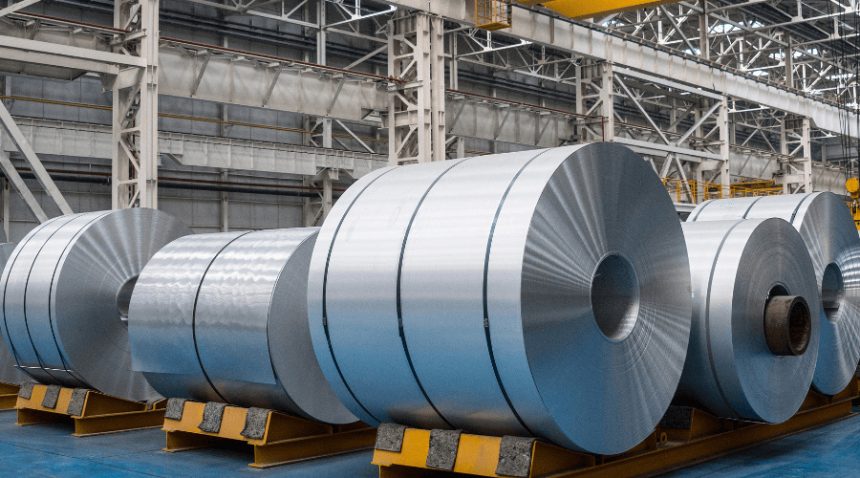Trump’s Trade Offensive: 25% Tariffs on Steel and Aluminum Imports Target Key U.S. Partners
During a Sunday press conference, United States President Donald Trump declared his administration would enforce 25% trade barriers on all incoming steel and aluminum products. These new regulations continue to expand his existing metals tariff policy while forming part of his broader trade policy reforms. President Trump informed reporters during Air Force One’s trip to New Orleans for the Super Bowl event about his plan to schedule the release of new trade restrictions on Monday.
In addition, Trump disclosed his intention to establish reciprocal duties that would correspond to the current tariffs imposed by other nations. The new trade tariffs will begin implementation within the coming days, starting on Tuesday, and will extend to all foreign countries harming U.S. trade with their tariffs. Under reciprocal tariffs, the United States plans to enact duties that equal the existing tariffs imposed by other countries on U.S. exported products.
Impact on Key U.S. Trading Partners
U.S. steel imports originate primarily from Canada, together with Brazil, Mexico, South Korea, and Vietnam. Canada leads the way as the main aluminum provider to the U.S. because hydropower enables it to supply 79% of American aluminum imports in 2024. The newly implemented tariffs are expected to cause substantial economic strain on these countries.
Canadian Innovation Minister Francois-Philippe Champagne told officials that Canadian steel and aluminum remain essential for industries including defense, shipbuilding, and automotive in the United States. The new tariffs have not stopped him from protecting Canadian workers and industries.
Premier Francois Legault of Quebec voiced worries about the U.S. moving away from Canadian exports toward Chinese import markets. Due to ongoing market uncertainties, the premier demanded a free trade agreement renegotiation with the U.S. before 2026 and its review date.
Trade Measures and Their Effects on U.S. Manufacturers
Trump implemented 25% steel and 10% aluminum tariffs soon after his initial presidential term started. Following the initial tariffs, the steel mill capacity use rate reached more than 80% in 2019, but domestic steel prices decreased when China asserted its leadership in world steel production. The imposed tariffs helped U.S. manufacturers recover with the rebirth of Mo Aluminum, but Magnitude 7 Metals closed down the plant in 2024.
During his new tariff strategy, Trump included changes to the auto industry by rejecting the European Union’s 10% tariff on imported vehicles, which stands in comparison to the U.S.’s 2.5% auto import tax. Trump asked the world to notice the imbalance while explaining its negative effect on American automotive exports. The United States imposes a 25% tariff on pickup truck imports, increasing Detroit car manufacturers’ profits.






